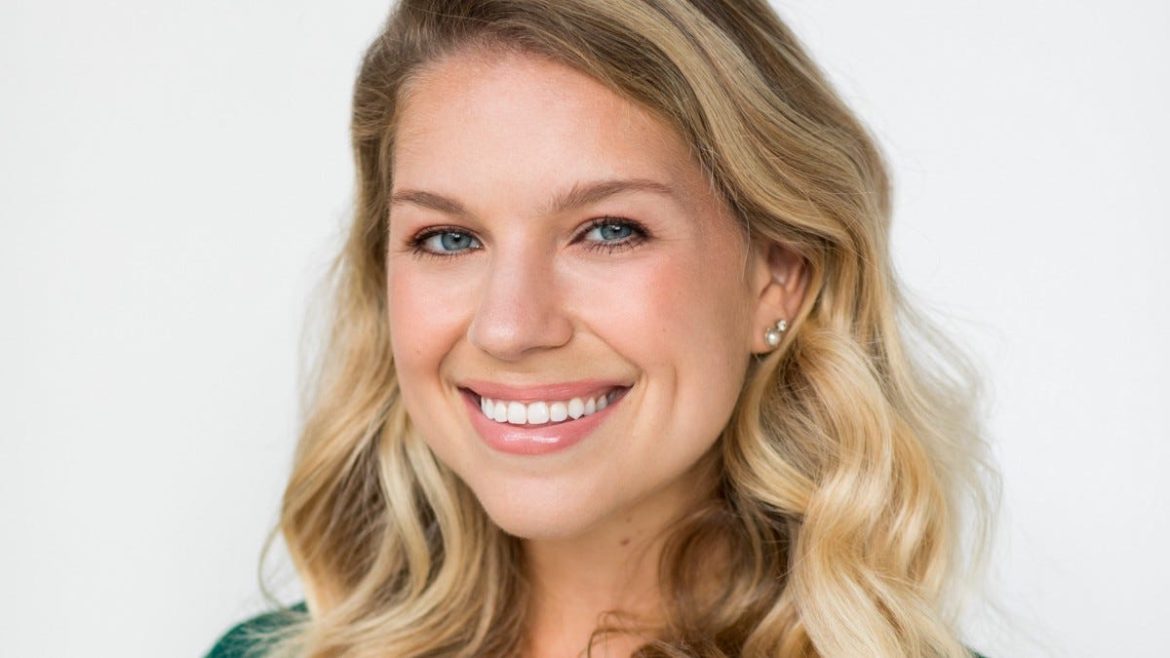Kristina Saffran was first diagnosed with anorexia at the age of 10. She went through different inpatient programs only to return home and fall back into the same eating disorder. “I didn’t know how to take care of myself, or my family,” she told Forbes .
Doctors told Kristina’s parents that there was little hope for recovery given her destructive behavior, but they said they could send her to a residential treatment center across the country. “It’s horrible to tell a 13-year-old girl that you’re going to live with this forever,” she said.
Instead of giving up, Kristina’s parents discovered an alternative called family-based therapy that would allow their daughter to remain at home. However, it meant that her parents would need to be heavily involved in her treatment, guiding her through every meal, doing regular weigh-ins and meeting weekly with a therapist. “[It] was the hardest year of my life,” said the now 32-year-old, “but it was definitely the thing that made me better.”
From personal to business
A decade after recovering from anorexia, Kristina started a company to help make this same type of therapy more accessible by providing a single online portal through which families can treat and manage a child’s eating disorder. Equip also offers complementary services that are not always offered alongside in-person therapy. The full care team includes a therapist, physician, dietitian, and peer and parent mentors.
Anorexia is one of the deadliest mental health disorders, second only to opioid addiction. Before starting Equip, Kristina attacked the problem from a different angle, co-founding an eating disorder nonprofit called Project HEAL, which landed her on the 2017 Forbes 30 Under 30 list for her work helping more kids access treatment.
But she soon realized that providing subsidies would only make a small impact on the estimated 28.8 million Americans who will suffer from some type of eating disorder in their lifetime.
Then Equip’s virtual therapy came along, a powerful formula that was so powerful in the face of a shortage of specialized therapists and in-person clinics. Co-founder Erin Parks, 44, is a clinical psychologist who previously worked at the UC San Diego Eating Disorder Center, treating families who had flown in from across the country for care.
Health plan
Knowing how difficult it was for families to find and afford treatment, the two were also adamant that Equip be covered by their health plan. While Optum Ventures, the venture capital arm of the nation’s largest insurer, UnitedHealth Group, participated in Equip’s seed round, it would take two years to build the platform before Equip launched with its first insurance contract in 2021. Since then, Equip has negotiated contracts with more than 25 health insurers nationwide, including Optum, UnitedHealthcare, Aetna and Cigna, and has treated more than 5,000 patients.
Together, Kristina and Erin have raised $110 million from global investors including venture capital firms General Catalyst, The Chernin Group and F-Prime.
Here’s how it works: Insurance companies pay Equip fixed monthly fees to manage each patient’s care. That means the San Diego-based startup can use the funds to offer services that go beyond traditional treatment codes, like peer mentoring and parenting.
By 2024, the company’s revenue is expected to double from $35 million last year. That growth helped Equip earn a spot on this year’s Next Billion-Dollar Startups list, as one of the 25 companies most likely to reach a $1 billion valuation and become a unicorn.
Equip is now trying to expand access to people who typically don’t receive treatment, including people over 24 and low-income patients on Medicaid. There’s a long-standing but damaging stereotype of anorexia as a condition that affects wealthy, white teenage girls, which means they’re the ones most likely to get tested.
“People of all body sizes have eating disorders,” Equip’s co-founder and chief clinical officer told Forbes. “We want fat people to feel safe getting treatment. We want men to feel safe getting treatment. We want people in their 30s, 40s, 50s and 60s to feel safe getting treatment.”
Since it began treating all ages in 2023, Erin said Equip has seen patients ages 4 to 70. Equip screens all patients upon admission to ensure they are medically stable enough for virtual care. Patients whose weights or heart rates are too low may need to be hospitalized.
The most common conditions Equip treats are anorexia, binge eating disorder, and avoidant restrictive food intake disorder (ARFID). These disorders are characterized by fear or anxiety about eating, resulting in behaviors such as choking or eating only very specific foods.
Family-based treatment is considered the gold standard for teens with anorexia, and research suggests there is no difference “in clinical outcomes based on the method of delivery, whether in person or via computer via a screen,” Brittany Matheson, an associate clinical professor at Stanford, told Forbes .
However, there is no treatment that is guaranteed to work for all patients. As Equip has begun treating adults, more types of eating disorders, and addressing co-occurring conditions like PTSD and depression, they now offer other types of therapy, such as cognitive behavioral therapy, dialectical behavior therapy, and exposure and response prevention therapy.

